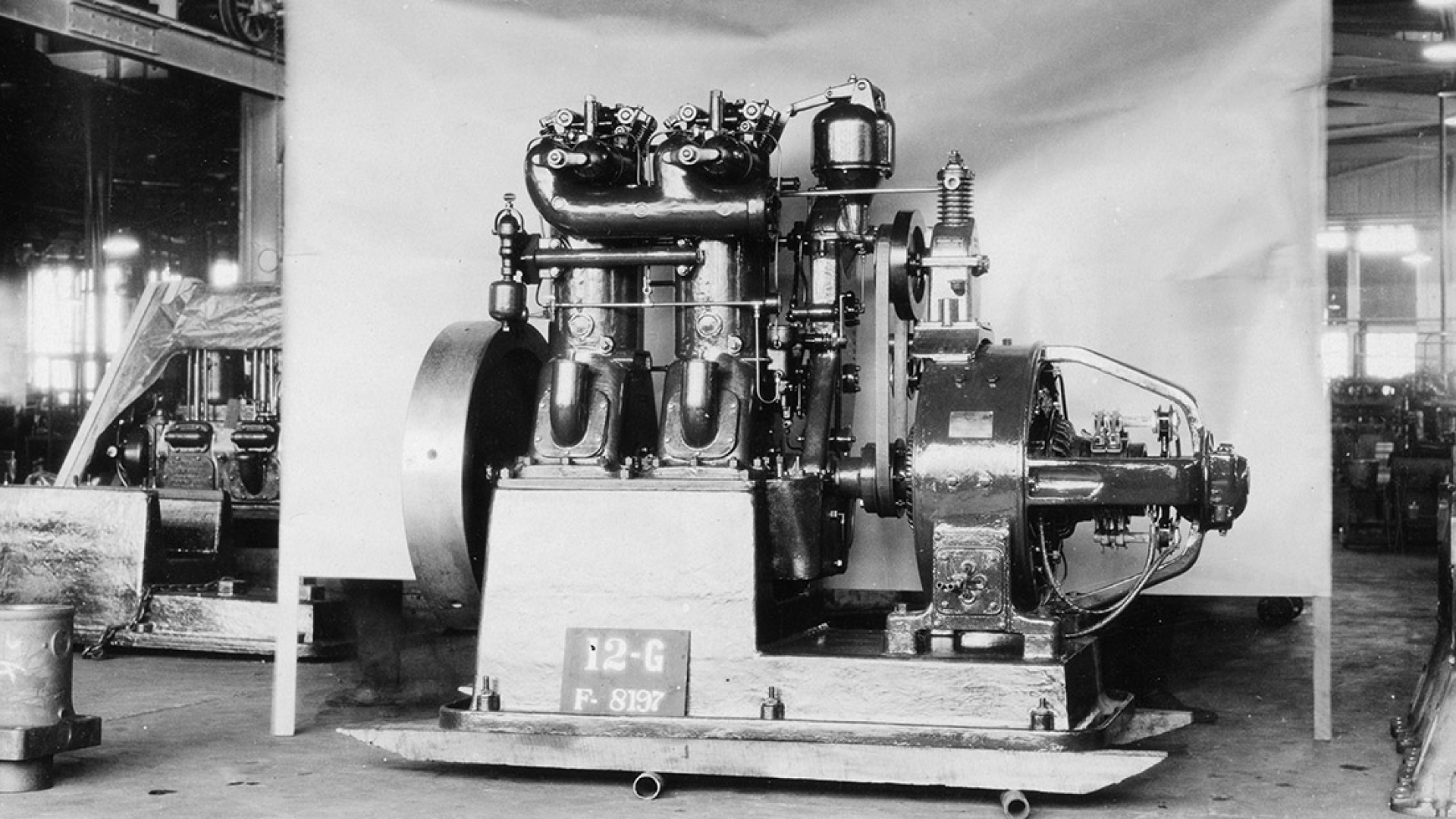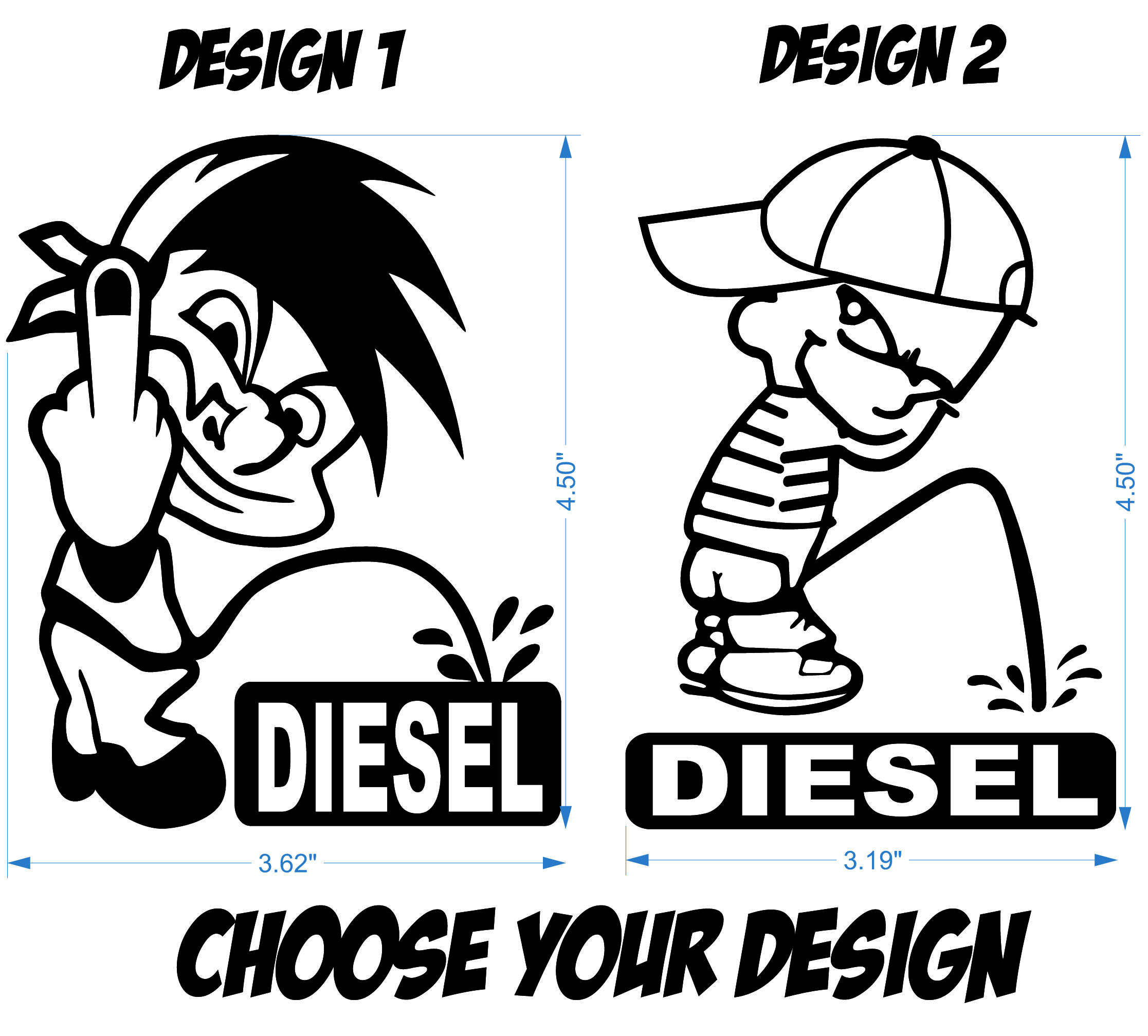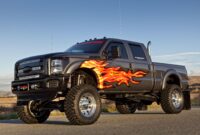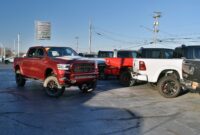Powering Your Project: A Comprehensive Guide to Diesel Rental Trucks cars.truckstrend.com
In the realm of heavy-duty hauling, commercial logistics, and large-scale personal projects, the diesel rental truck stands as an undisputed workhorse. More than just a vehicle, it’s a specialized tool engineered for power, efficiency, and endurance. Whether you’re a small business owner expanding operations, a contractor needing to move heavy equipment, or an individual undertaking a monumental move, understanding the capabilities and considerations of diesel rental trucks is paramount. This comprehensive guide will delve into every facet of these robust machines, from their inherent advantages to the practicalities of rental, ensuring you’re equipped to make the most informed decision for your next demanding task.
Why Choose Diesel? Understanding the Core Advantages
Powering Your Project: A Comprehensive Guide to Diesel Rental Trucks
The heart of any diesel rental truck is its engine, a marvel of engineering designed for unparalleled performance under strenuous conditions. Unlike their gasoline counterparts, diesel engines operate on principles that lend themselves to heavy-duty applications, offering distinct advantages:
- Unmatched Power and Torque: Diesel engines are renowned for producing significantly higher torque at lower RPMs compared to gasoline engines. This immense pulling power is crucial for hauling heavy loads, navigating inclines with ease, and towing large trailers, making them ideal for construction materials, machinery, or fully loaded residential moves.
- Superior Fuel Efficiency Under Load: While diesel fuel often costs more per gallon than gasoline, diesel engines are inherently more fuel-efficient, especially when operating under heavy loads. They extract more energy from each gallon of fuel, leading to fewer refueling stops and lower operational costs over long distances or demanding jobs.
- Durability and Longevity: Built to withstand the rigors of commercial use, diesel engines are incredibly robust and durable. Their components are designed for higher compression ratios and more sustained operation, contributing to a longer lifespan and greater reliability, which translates to less downtime for your project.
- Reliability and Performance: Diesel trucks are engineered for consistent, dependable performance. Their robust construction and efficient combustion process ensure they can handle continuous heavy use without faltering, providing peace of mind during critical operations.
Types of Diesel Rental Trucks Available

The diversity of tasks requiring a diesel workhorse is reflected in the wide array of truck types available for rent. Each is designed with specific applications in mind:
- Box Trucks (Straight Trucks): Ranging from 16-foot models often used for smaller commercial deliveries to massive 26-foot versions ideal for large residential or commercial moves. Many larger box trucks, especially those with higher Gross Vehicle Weight Ratings (GVWR), are diesel-powered due to the heavy loads they carry. They feature an enclosed cargo area, protecting goods from weather and theft.
- Flatbed Trucks: Characterized by an open, flat cargo bed, these trucks are perfect for transporting oversized or unusually shaped items that wouldn’t fit in a box truck, such as construction materials, equipment, or large machinery. Diesel engines provide the necessary power for these heavy payloads.
- Stake Body Trucks: Similar to flatbeds but with removable stakes or panels around the perimeter of the bed. This design offers more containment for loose materials like landscaping supplies, lumber, or debris, while still allowing for side loading and unloading.
- Heavy-Duty Pickup Trucks (e.g., Ford F-250/350, Ram 2500/3500, Chevy Silverado 2500/3500): These are increasingly popular for their versatility. Equipped with powerful diesel engines, they excel at towing substantial trailers (e.g., gooseneck, fifth-wheel, large utility trailers) and can carry significant payloads in their beds, making them suitable for contractors, farmers, or those towing large recreational vehicles.
- Tractor Units (Semi-Trucks): For businesses requiring the transport of full-sized trailers (dry vans, flatbeds, refrigerated trailers), diesel tractor units are the only viable option. These are typically rented by commercial entities with CDL-licensed drivers.
- Dump Trucks: Primarily used in construction and landscaping, diesel dump trucks are designed to transport and efficiently unload bulk materials like sand, gravel, dirt, and demolition debris.

When to Rent a Diesel Truck: Ideal Use Cases

Understanding when a diesel truck is the optimal choice can save you time, money, and hassle:
- Long-Distance Moving (Residential or Commercial): If you’re moving across states or even across a large region, the fuel efficiency of a diesel truck under load will significantly reduce your overall fuel expenses.
- Heavy Equipment Transport: Moving excavators, forklifts, tractors, or large generators necessitates the high torque and towing capacity of a diesel flatbed or heavy-duty pickup.
- Commercial Deliveries: For businesses regularly transporting large volumes of goods, furniture, or appliances, diesel box trucks offer the reliability and efficiency needed for daily operations.
- Construction and Landscaping Projects: Hauling building materials, aggregate, or debris requires the brute strength of diesel-powered dump trucks, flatbeds, or stake bodies.
- Towing Large Trailers: Whether it’s a substantial travel trailer, a multi-car hauler, or a heavy equipment trailer, a diesel heavy-duty pickup provides the stability and power to tow safely and efficiently.
- Agricultural Needs: Transporting feed, livestock, or farm equipment often demands the robust capabilities of diesel trucks.
Key Considerations Before Renting
Before signing on the dotted line, a thorough understanding of these factors will ensure a smooth rental experience:
- Capacity Needs: Accurately assess the weight (payload and towing capacity) and volume (cubic feet) of what you need to transport. Overloading a truck is dangerous and can lead to costly fines or breakdowns.
- License Requirements: This is critical. Trucks with a GVWR (Gross Vehicle Weight Rating) over 26,000 pounds typically require a Commercial Driver’s License (CDL). Most rental box trucks available to the general public for personal moves are under this threshold (e.g., 26-foot box trucks are often around 25,999 lbs GVWR to avoid CDL requirements), but always confirm with the rental company and your state’s regulations.
- Fuel Costs: While diesel is efficient, it often has a higher price per gallon than gasoline. Factor this into your budget.
- Rental Period: Determine if you need the truck for a day, a week, or a month. Rental rates decrease with longer commitments.
- Insurance: Your personal auto insurance may not cover rental trucks, especially larger commercial vehicles. Rental companies offer supplemental insurance (e.g., collision damage waiver, liability). If you’re a business, your commercial policy might cover it, but verify coverage for rental vehicles.
- Mileage Limits/Fees: Some rentals offer unlimited mileage, while others charge a per-mile fee after a certain threshold. Calculate your estimated distance to avoid surprise charges.
- Pre-Trip Inspection: Before driving off, perform a thorough inspection of the truck: check tire pressure, lights, brakes, fluid levels, and note any existing damage. Take photos for documentation.
- Rental Company Reputation: Stick with reputable companies like Penske, Ryder, U-Haul, or Budget, known for well-maintained fleets and reliable roadside assistance.
- Return Policy: Understand the requirements for returning the truck, including fuel level (usually full), cleanliness, and designated return location.
The Rental Process: A Step-by-Step Guide
Renting a diesel truck is straightforward if you follow these steps:
- Determine Your Needs: Pinpoint the exact size, type, duration, and estimated mileage for your project.
- Research Rental Companies: Compare offerings from various providers. Look for companies specializing in commercial or heavy-duty rentals if your needs are extensive.
- Get Quotes: Obtain detailed quotes that include all fees: base rate, mileage charges, insurance options, environmental fees, and taxes.
- Book the Truck: Reserve your truck online, over the phone, or in person. Be prepared to provide your driver’s license information and payment details.
- Pick Up the Truck: Bring your valid driver’s license and the payment method used for the reservation. Carefully review the rental agreement, ensuring all terms, conditions, and charges are clear. Conduct your pre-trip inspection and document any existing damage.
- Operation: Familiarize yourself with the truck’s controls, especially if it has air brakes or unique features. Understand how to operate the liftgate if applicable. Pay attention to dashboard warning lights, especially those related to DEF (Diesel Exhaust Fluid) or DPF (Diesel Particulate Filter).
- Return: Refuel the truck to the specified level (usually full) and ensure it’s reasonably clean. Return it to the designated location at the agreed-upon time. A final inspection will be conducted, and your deposit will be processed.
Tips for Operating and Maintaining a Diesel Rental Truck
Driving a large diesel truck is different from a passenger car. Here are some essential tips:
- Familiarize Yourself: Take a few minutes to get comfortable with the truck’s dimensions, blind spots, turning radius, and braking distance before hitting the road.
- Proper Loading and Weight Distribution: Distribute your load evenly, placing heavier items towards the front and lower to the floor. Secure all items to prevent shifting during transit.
- Understand DEF and DPF: Many modern diesel trucks require Diesel Exhaust Fluid (DEF) to reduce emissions. The truck will warn you if DEF levels are low, and ignoring these warnings can lead to reduced engine power or even prevent the truck from starting. Diesel Particulate Filters (DPF) capture soot; the truck’s system will periodically perform a "regeneration" cycle to burn off this soot. Don’t be alarmed if you notice a burning smell or increased engine idle during this process.
- Pre-Trip and Post-Trip Inspections: Beyond the initial pickup, conduct quick checks (tires, lights, fluid levels) before each leg of your journey.
- Driving Techniques: Allow for longer braking distances. Use engine braking on descents. Accelerate smoothly and avoid sudden maneuvers.
- Fueling: Always double-check that you’re using the correct diesel nozzle. Accidental gasoline fueling can cause severe engine damage.
Challenges and Solutions
While powerful, diesel rental trucks come with their unique set of considerations:
- Higher Fuel Cost Per Gallon: While offset by efficiency under load, the upfront cost of diesel can be higher. Solution: Plan your route efficiently, consolidate trips, and leverage the truck’s superior fuel economy for heavy loads and long distances.
- Larger Turning Radius and Handling: These trucks are bigger and heavier, requiring more space for turns and braking. Solution: Practice in an empty lot if unfamiliar, use spotters when backing up, and always anticipate turns well in advance.
- Finding Diesel Stations: Not all gas stations carry diesel. Solution: Use mapping apps (like GasBuddy or Google Maps) with fuel filters to locate diesel pumps, especially truck stops, which are well-equipped.
- DEF/DPF Issues: Ignoring low DEF warnings or DPF regeneration messages can lead to power derates or even a no-start condition. Solution: Pay attention to dashboard indicators. Most rental companies will provide instructions or support for DEF refilling or DPF regeneration if necessary.
- CDL Requirements: Misunderstanding license requirements can lead to legal issues. Solution: Always verify the GVWR of the specific truck you intend to rent and ensure your license is appropriate for that class of vehicle. When in doubt, rent a truck clearly under the CDL threshold.
- Breakdowns: Like any vehicle, rental trucks can experience mechanical issues. Solution: Choose a reputable rental company with 24/7 roadside assistance. Familiarize yourself with their emergency contact information before you begin your journey.
Price Table: Estimated Diesel Rental Truck Costs
Please note that these prices are estimates and can vary significantly based on location, rental company, time of year, duration of rental, and specific truck availability. Always obtain a detailed quote from your chosen provider.
| Truck Type / Size | Typical Daily Rate Range | Typical Weekly Rate Range | Typical Monthly Rate Range | Key Inclusions/Exclusions | Potential Additional Costs |
|---|---|---|---|---|---|
| Heavy-Duty Diesel Pickup (e.g., F-250/350, Ram 2500/3500) |
$100 – $250 | $450 – $1,000 | $1,500 – $3,500 | – Mileage: Often unlimited or generous allowance – Fuel: Excluded (Diesel) – Insurance: Optional add-on |
– Mileage overage fees – Damage waiver – Cleaning fees |
| 16-22 ft Diesel Box Truck (Non-CDL, e.g., Penske 16ft, 22ft) |
$120 – $300 | $500 – $1,300 | $1,800 – $4,000 | – Mileage: Often per-mile charge (e.g., $0.79-$1.29/mile) – Fuel: Excluded (Diesel) – Insurance: Optional add-on |
– Mileage charges – Environmental fees – Late return fees |
| 24-26 ft Diesel Box Truck (Non-CDL, e.g., Penske 26ft, Ryder 26ft) |
$150 – $400 | $600 – $1,600 | $2,000 – $5,000 | – Mileage: Often per-mile charge – Fuel: Excluded (Diesel) – Insurance: Optional add-on |
– Mileage charges – Environmental fees – Damage waiver |
| Diesel Flatbed/Stake Body (Non-CDL, e.g., 20-24 ft) |
$180 – $450 | $700 – $1,800 | $2,500 – $6,000 | – Mileage: Varies (per-mile common) – Fuel: Excluded (Diesel) – Insurance: Optional add-on |
– Mileage charges – Surcharges for specialized equipment |
| Diesel Tractor Unit (CDL Required, e.g., Day Cab, Sleeper Cab) |
$250 – $600 | $1,000 – $2,500 | $3,500 – $8,000+ | – Mileage: Often unlimited for commercial accounts – Fuel: Excluded (Diesel) – Insurance: Often commercial policy required |
– Additional equipment rental (e.g., trailer) – Tolls, permits |
Note: Fuel, DEF (Diesel Exhaust Fluid), and insurance are almost always additional costs. Some companies offer packages that include limited mileage or specific insurance options.
Frequently Asked Questions (FAQ) about Diesel Rental Trucks
Q1: Do I need a special license to drive a diesel rental truck?
A1: It depends on the truck’s Gross Vehicle Weight Rating (GVWR). Most large box trucks available for rent to the general public (e.g., 26-foot moving trucks) are designed to stay under 26,001 lbs GVWR, meaning a standard Class D driver’s license is sufficient. However, if you’re renting a larger commercial vehicle like a tractor unit, a dump truck, or a flatbed over this weight, a Commercial Driver’s License (CDL) will be required. Always confirm with the rental company and your state’s regulations.
Q2: Are diesel trucks more fuel-efficient than gasoline trucks?
A2: Yes, generally. Diesel engines are inherently more fuel-efficient, especially when operating under heavy loads or during long-haul driving. While diesel fuel often costs more per gallon, the improved mileage under load can lead to lower overall fuel costs for demanding tasks compared to a gasoline truck of similar capacity.
Q3: What is DEF, and why do diesel trucks need it?
A3: DEF stands for Diesel Exhaust Fluid. It’s a non-toxic solution used in modern diesel trucks to reduce harmful nitrogen oxide (NOx) emissions. The DEF is injected into the exhaust stream, where it reacts with NOx to convert it into harmless nitrogen and water vapor. The truck will have a separate DEF tank that needs to be refilled periodically; ignoring low DEF warnings can lead to reduced engine power or prevent the truck from starting.
Q4: Can I rent a diesel truck for personal use, like moving my home?
A4: Absolutely. Many rental companies offer diesel box trucks (typically 16-foot to 26-foot) for personal moves. These trucks are often specifically designed to be driven with a standard driver’s license.
Q5: What kind of insurance do I need when renting a diesel truck?
A5: Your personal auto insurance policy may not cover rental trucks, especially larger commercial vehicles. Rental companies offer various supplemental insurance options, such as Collision Damage Waiver (CDW) and liability coverage. If you’re a business, check if your commercial auto policy extends coverage to rented vehicles. It’s crucial to understand your coverage before you drive off the lot.
Q6: Are diesel trucks harder to drive than regular cars?
A6: They require more attention and different driving techniques due to their larger size, heavier weight, and different handling characteristics. They have larger blind spots, wider turning radii, and longer braking distances. However, with proper caution, familiarization, and defensive driving, they are manageable for most licensed drivers.
Q7: Where can I refuel a diesel rental truck?
A7: You can find diesel pumps at most truck stops and many larger gas stations. Look for the green pump handles, which typically indicate diesel. It’s always a good idea to plan your fuel stops, especially on long journeys, as not every small gas station will carry diesel.
Conclusion
Diesel rental trucks are indispensable assets for a wide range of demanding tasks, from complex commercial logistics to significant personal endeavors. Their inherent advantages in power, fuel efficiency under load, and durability make them the superior choice for heavy hauling and long distances. By carefully considering your specific needs, understanding the available truck types, navigating the rental process with diligence, and adhering to best practices for operation, you can harness the full potential of these formidable machines. Equipped with the insights from this guide, you’re now ready to confidently select and operate the right diesel rental truck, ensuring your project is powered to success.



